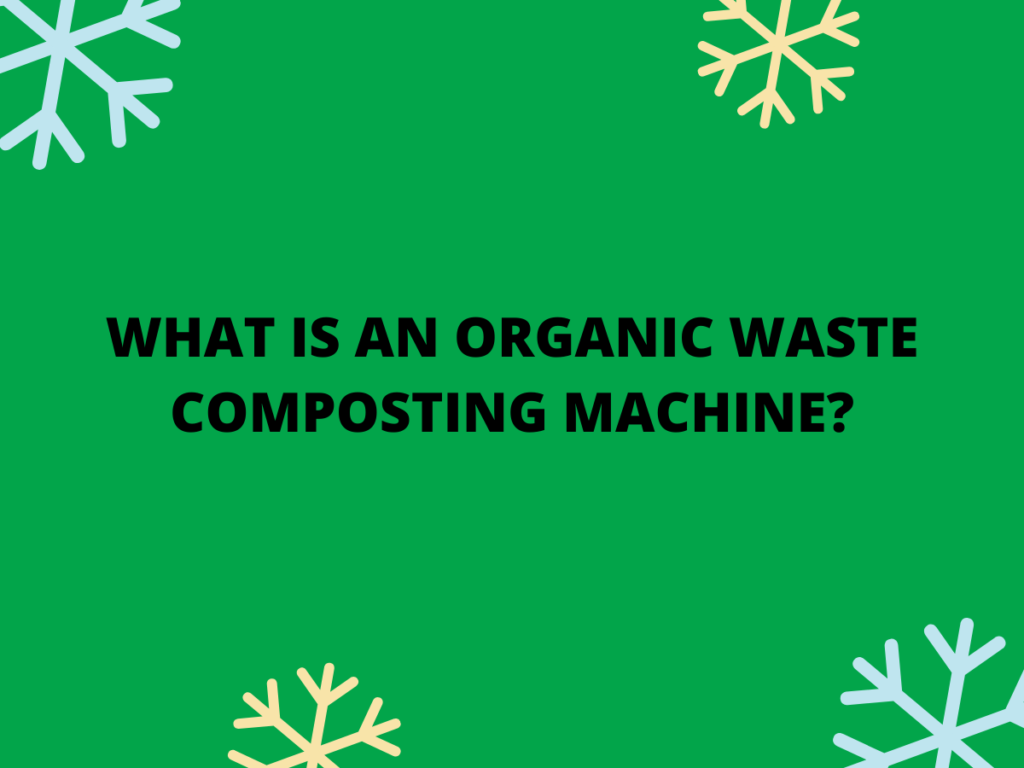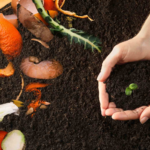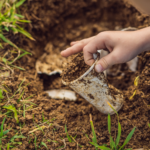
With such a huge amount of waste generated every single day both at a domestic level and industrial level, it becomes vital to handle waste effectively. The food dumped into landfills release methane which is dangerous for the earth as a whole.
Composting is the best way to handle the waste. Instead of dumping more and more waste into the backyard and landfills, people are getting wise enough to turn waste into usable manure. With technological advancements, it has been possible to even accelerate natural processes. Industries and businesses are shifting towards automation.
Before getting into organic waste composting machine, it is important to know the basics of composting.
What is composting?
Composting is a way of breaking down complex organic substances into simpler ones with the help of micro-organisms present in the soil. The final pathogen-free product after a breakdown is called compost. A composting machine can easily compost any waste and turn it into a useable fertilizer.
What is an organic waste composting machine?
An organic waste composting machine is an independent unit that facilitates the composting process and provides better composts. It takes waste as its input and provides manure as its output.
Composting without an organic waste composting machine will take a considerable amount of time. A company must install a compost machine to compost waste as soon as possible so that the waste generated does not pile up.
A machine creates a situation to hasten the composting process.
How does it work?
Whether you are composting through a machine or naturally, the process is more or less the same.
The waste is first shredded through an automatic shredder which reduces the volume of waste. It will enhance its decomposition.
Mesophilic bacteria is responsible for carrying out the decomposition of biodegradable waste in the first stage. Since the bacteria are mesophilic, it can exist at a moderate temperature of 20-45 degrees celsius.
The first stage lasts for a few days. Since the breaking down of such waste releases heat, the temperature can rise to over 40 degrees Celsius.
The heat released in the first stage is required for thermophilic bacteria in the second stage. These bacteria decompose waste further when subjected to high temperatures.
The second stage, unlike the first stage, carries on for months depending on the amount of waste fed. However, due care is to be exercised as the temps can go higher. The high temperature will destroy the bacteria itself.
Also, the balance of nitrogen and carbon must be optimum. Too much nitrogen will give off smell whereas too much carbon will de-accelerate composting.
Can composting be done within a day?
While it can take months for waste to turn into compost naturally, automated organic compost machines can do it in a day! Some machines can output directly usable manure instead of basic compost.
Also, some machines have a built-in shredder to shred waste. Most of the machines have PLC control systems. An advanced organic composting machine has MSDS too which is short for Modular Solar Dehydration System. With the help of MSDS, a machine can produce output by more than 10 times with a reduced maintenance cost.
Why should you use an organic waste composting machine?
There are a number of the environment as well as the economic benefits of using a machine to compost organically some of which are as follows:
- Composting through a machine makes composting easier and hassle-free.
- The composting machine accelerates the composting process.
- Composting helps soil maintain fertility and accelerates plant growth.
- With the help of compost, soil can retain more water
- Composting reduces the methane emissions in the air due to food dumped in landfills. Composting is a way to keep greenhouse gases in check.
- Composting prevents soil erosion
- Composting serves as a natural fertilizer avoiding the need for any chemical substances for inducing plant growth.
- Composting can help you manage waste efficiently and reduce transportation costs.
- Composting can be sold to a local farmer which can be cheaper and better than chemical fertilizer.
- Composting through the composting machine will help reduce rodents and insects
Who should use organic waste composting machines?
The composting machine has become popular nowadays and is more preferred to home composting. An organic waste composting machine is useful for:
- Hotels, Restaurants, Canteens
- Stadiums, Parks
- Hospitals
- Schools, Colleges and Universities
- Airports
- Vegetable markets and Supermarkets
- Corporates and multinationals
Things to avoid composting
Non-biodegradable waste should not be composted. While feeding waste into the machine, you need to make sure you are not putting in plastics, construction materials, coconut shells, wooden objects, metals, etc. into it. This may damage the machine.
If you have not installed an organic waste composting machine, it is time to do so. We can get nature-friendly and turn waste into natural manure.




